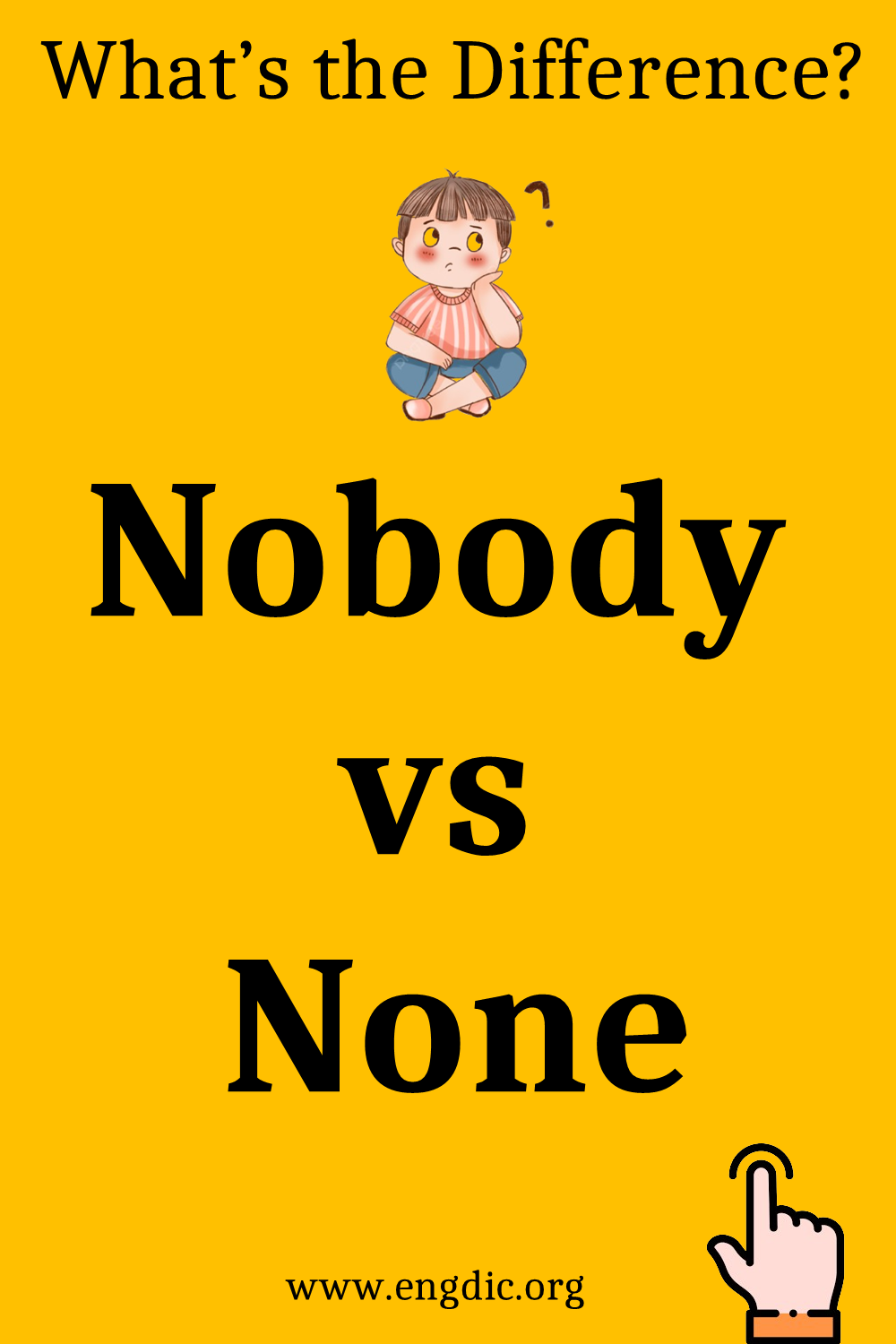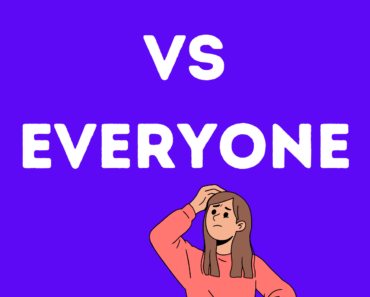Understanding the difference between “nobody” and “none” can help improve clarity and precision in communication. Although both words imply the absence of people or things, they are used in different contexts and have distinct grammatical roles. This article will explore these differences to help you use “nobody” and “none” correctly in your writing and speech.
Definitions and Usage
Nobody
- Definition: “Nobody” is a pronoun that specifically refers to the absence of any person. It is used to indicate that not a single person is present or involved in a situation.
- Context of Use: “Nobody” is typically used when referring to people only and not objects or abstract concepts.
- Examples:
- “Nobody was at the party.”
- “Nobody knows the answer to that question.”
None
- Definition: “None” is a more versatile pronoun that can refer to not any part of a quantity or number, whether it’s people, objects, or abstract ideas.
- Context of Use: “None” can be used interchangeably to denote zero quantity of either people or things.
- Examples:
- “None of the cakes were eaten.”
- “None of the students were able to solve the problem.”
Grammatical Differences
Sentence Structure
- Nobody:
- “Nobody” acts as a subject and is always singular, often followed by a singular verb.
- Example: “Nobody is available to take your call right now.”
- None:
- “None” can be singular or plural, depending on what it refers to, and it agrees in number with the noun in its phrase.
- Examples: “None of the money was stolen.” (singular) / “None of the cookies were stolen.” (plural)
Formality and Emphasis
- Nobody:
- “Nobody” is informal and emphatic, often used to emphasize the complete absence of people in a more absolute, casual way.
- None:
- “None” can be formal or informal and is less emphatic. It is often used in more formal or written contexts.
Practical Tips for Correct Usage
- Identify What You Are Referring To: Use “nobody” for people and “none” for both people and things.
- Check Verb Agreement: Ensure the verb agrees in number with “none” when it refers to plural nouns.
- Consider the Formality: Opt for “none” in more formal contexts and “nobody” in casual speech or writing.
Conclusion
While “nobody” and “none” are often used interchangeably in casual speech, understanding their differences enhances the precision and effectiveness of communication. Remember, “nobody” exclusively refers to the absence of people, while “none” can refer to the absence of both people and objects. Choosing the right word depends on the context, the subject you are referring to, and the formality of the situation.







